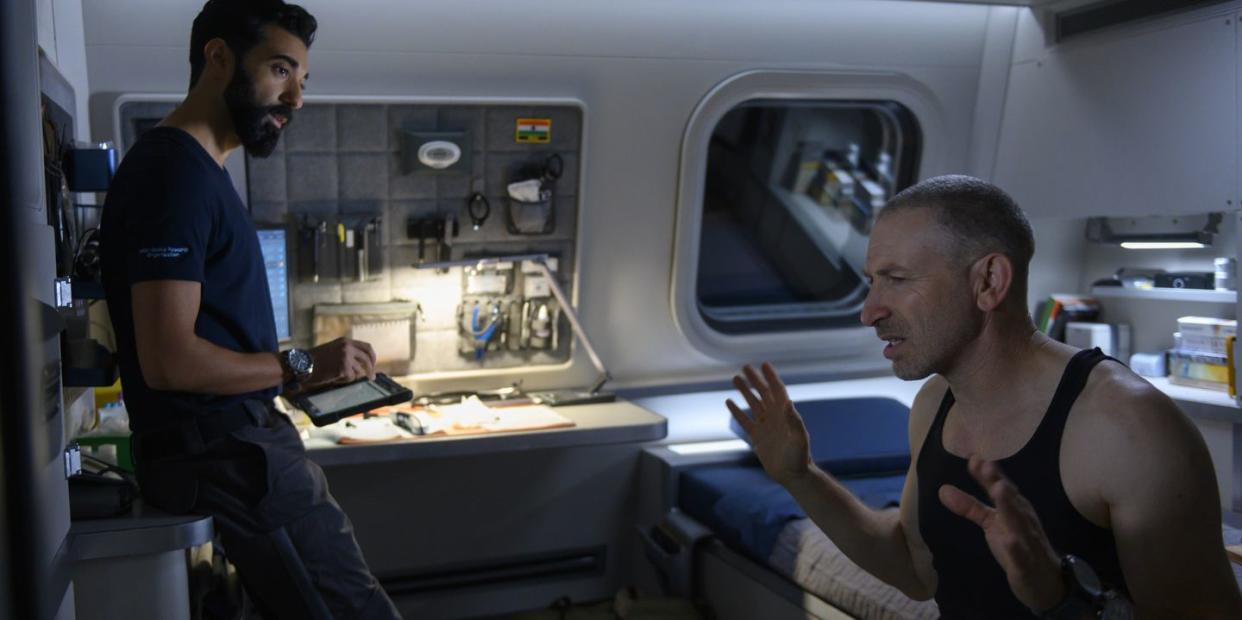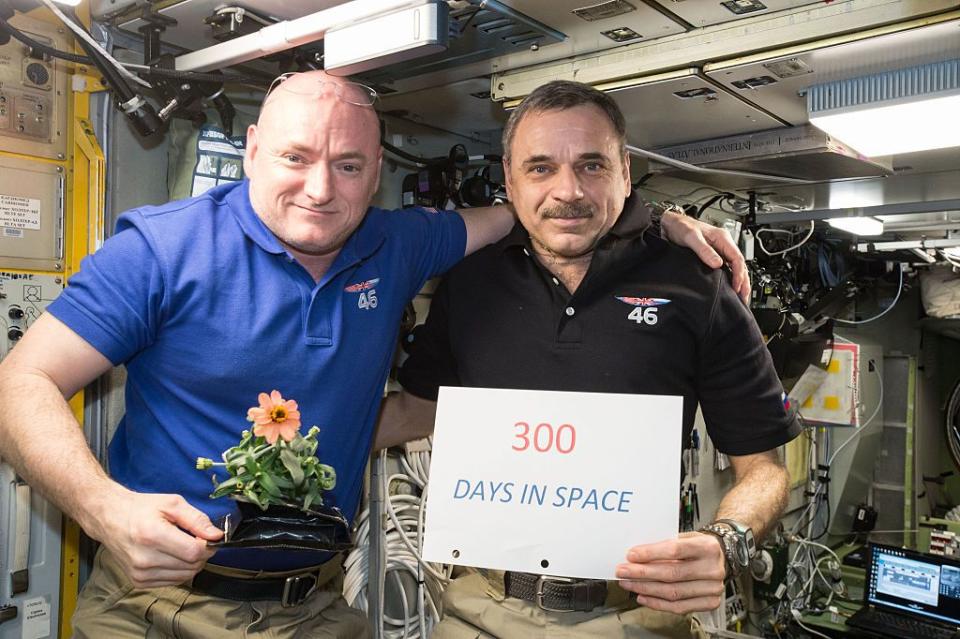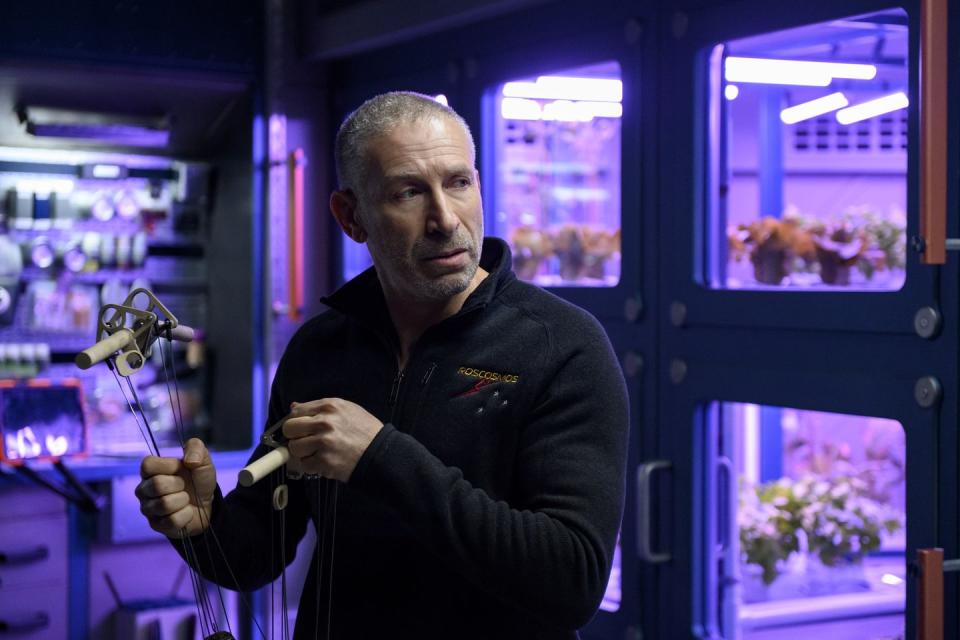The Space Blindness in 'Away' Is a Real Concern for NASA

Space blindness—the loss of vision experienced in zero gravity (or microgravity) environments—isn’t just a dramatic plot point for Netflix’s Mars odyssey, Away; space blindness (or rather “impairment”) is an actual documented phenomenon experienced by astronauts.
In fact, almost two-thirds of astronauts report problems with eyesight after months at the International Space Station. One astronaut reported that his impairment worsened so much that he couldn't read the words on a landing checklist.
Between 2015-2016, American astronaut Scott Kelly spent a year at the International Space Station. (His experience acts as the basis for Netflix’s Away.) During that year, parts of Kelly’s retinas actually thickened. He also experienced swelling to the blood supply to the back of his eye. (Kelly’s strong vision was one of the reasons he was first selected as an astronaut.)
Former NASA Human Research Program Chief Scientist Mark Shelhamer noted in an interview with Air and Space that, for some, impairment has even lingered after returning from space and usually requires an astronaut being there for roughly six months. Stays in space longer than six months (and, for a hypothetical trip to Mars, longer than a year) present a lot of unknowns when it comes to vision impairment. Some research even now suggests that to prevent vision problems, astronauts may require artificial gravity.

So Misha’s being ordered to stay in his crew cabins to help restore his eyesight may not be an unlikely command on an extended space flight.
What causes space blindness?
Reasons for vision impairment aren’t known for certain, though researchers have several theories. One theory suggests that because zero gravity causes fluids in the body to rise (think of astronauts’ bloated-looking faces in space), all the extra fluid in the skull might create pressure on the back of the eye.
Testing the theory, researchers found oxidative stress caused by microgravity (or weak gravity) might be doing damage to blood vessels in the eye. If they can find a way to counter oxidative stress, perhaps they can protect astronauts’ vision.

In the universe of Netflix’s Away, it doesn’t seem like the problem was ever solved. The countermeasure instead was simply artificial gravity. But as it might take months for vision to return, locking a visually-impaired astronaut in his room doesn’t seem like the best strategy for a 3-year-long mission to Mars.
You Might Also Like

